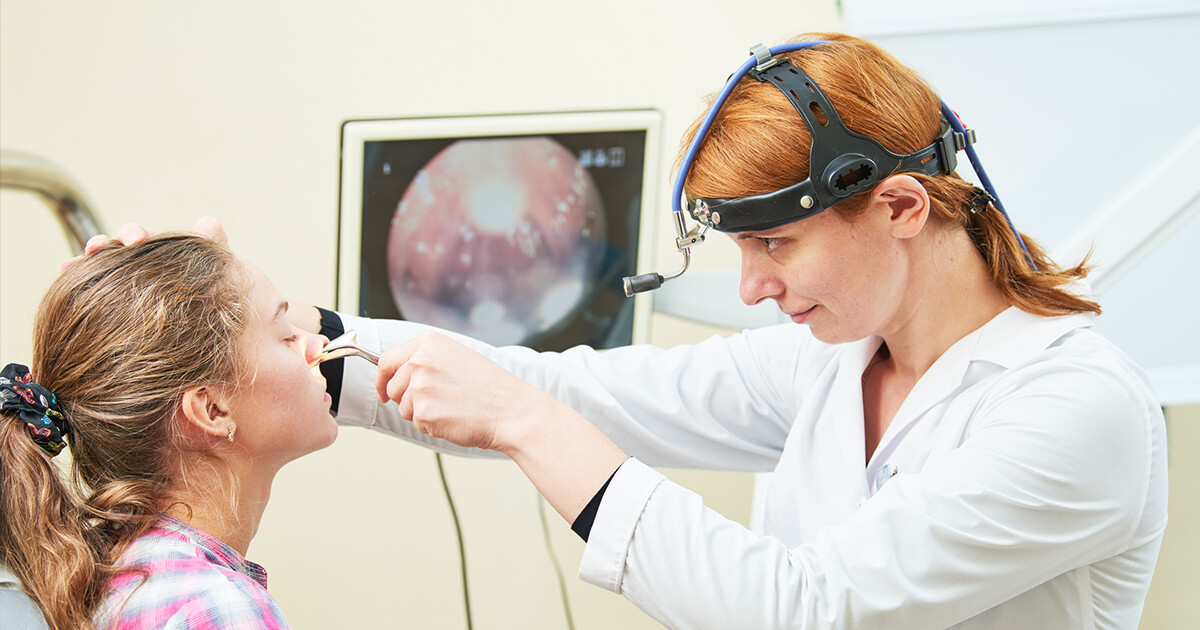Exploring the Field of Otolaryngology: What to Anticipate When You Consult an ENT
Otolaryngology, frequently referred to as ENT, encompasses the medical diagnosis and therapy of throat, ear, and nose disorders. For those experiencing relevant concerns, seeking advice from an ENT professional can give clearness and alleviation. Recognizing what to anticipate throughout such examinations is important for effective interaction and treatment. This overview will certainly detail crucial aspects of the ENT experience, consisting of common reasons for check outs and the processes involved in medical diagnosis and treatment.

Understanding Otolaryngology: An Overview
Otolaryngology, typically referred to as ENT (Throat, ear, and nose) medication, is a customized branch of medication that concentrates on the diagnosis and treatment of problems impacting these critical areas of the body. This area encompasses a wide variety of disorders, including those relevant to hearing, equilibrium, respiratory system function, and speech. Otolaryngologists are trained to manage both medical and clinical treatments, making use of advanced strategies and modern technologies. Their competence extends beyond traditional conditions, attending to concerns such as allergic reactions, sinus infections, and hearing loss. Furthermore, they play a crucial duty in the management of head and neck cancers cells, offering detailed treatment tailored to individual patient requirements. In general, otolaryngology continues to be necessary for keeping wellness and lifestyle in damaged individuals.
Usual Reasons to See an ENT Expert
Numerous individuals seek the expertise of an ENT expert for a variety of reasons, showing the varied nature of conditions that impact the nose, ear, and throat. Usual problems consist of chronic sinusitis, which typically brings about relentless nasal congestion and face discomfort. Allergies and their associated symptoms, such as sneezing and itching, also motivate check outs to these professionals (Voice). Hearing loss, whether progressive or abrupt, is another significant factor for assessment. Additionally, individuals may look for assessment for throat disorders, consisting of persistent hoarseness or swallowing difficulties. Sleep apnea, characterized by cut off breathing during rest, is frequently addressed by ENT experts also. Each of these problems highlights the relevance of specialized care in taking care of intricate ENT-related health and wellness concerns
Planning for Your ENT Consultation
When getting ready for an ENT visit, it is crucial to gather pertinent details and take into consideration any type of details concerns. Patients should compile a comprehensive case history, consisting of previous ear, nose, or throat problems, surgical treatments, and present drugs. Recording signs and symptoms-- such as duration, regularity, and seriousness-- can supply valuable understandings for the ENT professional. In addition, people should prepare a listing of concerns they want to ask, making certain that all issues are dealt with during the go to. Bringing along any type of pertinent medical documents or examination outcomes can additionally aid the ENT in comprehending the person's problem. Finally, people ought to confirm their appointment information, consisting of day, place, and time, to reduce any kind of last-minute confusion. Appropriate prep work can improve the performance of the examination and lead to far better results.
What to Anticipate During the Appointment
As the appointment begins, the client can anticipate to participate in a thorough conversation with the ENT specialist about their signs and symptoms and clinical background. The professional will ask about the duration, regularity, and intensity of symptoms such as hearing loss, nasal blockage, or aching throat. Additionally, the person's previous medical problems, medications, and any kind of pertinent household history will be evaluated, helping the professional in creating a total understanding of the patient's health. The ENT might likewise ask about way of life elements, such as exposure to allergens or toxic irritants. This open dialogue develops a structure for the appointment, making certain that the individual's problems are dealt with and establishing the stage for any kind of essential assessments or referrals for treatment.
Diagnostic Tests and Procedures in Otolaryngology
A series of diagnostic tests and procedures are vital in otolaryngology to properly assess and diagnose problems affecting the nose, throat, and ear. Usual examinations include audiometry, which determines hearing function, and tympanometry, assessing center ear pressure. Nasal endoscopy enables visualization of the nasal passages and sinuses, while laryngoscopy checks out the throat and singing cables. Imaging methods, such as CT scans and MRIs, provide comprehensive sights of head and neck frameworks. Allergic reaction testing may additionally be carried out to identify triggers for sinus or respiratory system problems. These diagnostic tools make it possible for ENT experts to develop an extensive understanding of patients' conditions, ensuring customized and efficient management strategies. Appropriate medical diagnosis is vital for successful therapy results in otolaryngology.
Treatment Options Supplied by ENT Specialists
ENT professionals use a range of treatment choices customized to attend to certain conditions affecting the ear, throat, and nose. These treatments range from traditional strategies, such as drug and way of life modifications, to more intrusive treatments. Allergies may be managed with antihistamines or immunotherapy, while chronic sinusitis could require nasal corticosteroids or sinus surgical treatment. see this page For hearing loss, ENT experts commonly recommend listening device or surgical interventions like cochlear implants. In situations of throat conditions, choices can consist of speech therapy or operations to remove blockages. Furthermore, they might provide guidance for handling rest apnea, consisting of making use of CPAP gadgets or surgical treatments. Generally, the goal is to enhance patients' lifestyle with personalized care and efficient therapy strategies.
When to Look For Follow-Up Care With an ENT
When to look click reference for follow-up care with an ENT professional is crucial for taking care of recurring signs or complications associated to ear, nose, and throat problems, acknowledging. People need to take into consideration setting up a follow-up consultation if symptoms persist regardless of preliminary therapy, such as chronic ear discomfort, nasal congestion, or throat pain. Adjustments in hearing, balance concerns, or uncommon nasal discharge may additionally call for additional analysis. Additionally, if a person experiences negative effects from recommended drugs or has undergone a surgical procedure, follow-up treatment is essential to check recovery and address any type of worries. Prompt assessments can ensure efficient monitoring of problems, prevent prospective complications, and provide comfort pertaining to one's health and wellness. Looking for follow-up care promotes aggressive wellness management in otolaryngology.
Regularly Asked Concerns

What Credentials Should I Look for in an ENT Expert?
When looking for an ENT professional, one should try to find board certification, pertinent experience, and solid individual evaluations. Furthermore, reliable communication skills and a thoughtful technique can significantly improve the general therapy experience.
How Do I Pick the Right ENT for My Needs?
Choosing the right ENT expert involves assessing their qualifications, experience, and client evaluations (Sinus). It is vital to consider their interaction style and technique to treatment, guaranteeing they straighten with the person's find here certain health demands and preferences
Are There Any Kind Of Dangers Associated With ENT Procedures?
The risks connected with ENT procedures might include infection, bleeding, anesthesia problems, and potential damage to bordering frameworks. Individuals need to go over these risks with their medical professional to recognize private concerns and assurance informed choices.
Exactly How Can I Manage Anxiety Before My ENT Consultation?
To take care of stress and anxiety before an appointment, individuals can exercise deep breathing exercises, visualize favorable outcomes, prepare inquiries in breakthrough, and look for support from close friends or family, cultivating a sense of peace of mind and calmness.
What Should I Do if I Experience Side Impacts From Treatment?
The individual needs to immediately report them to their healthcare supplier if side effects from therapy take place. Adjustments to treatment or extra treatments might be required to ensure safety and security and performance in handling their problem - Otolaryngologist. As the consultation begins, the patient can anticipate to engage in an extensive discussion with the ENT expert regarding their signs and symptoms and medical background. These diagnostic tools make it possible for ENT specialists to establish a complete understanding of patients' problems, ensuring tailored and effective administration strategies. ENT specialists offer a range of treatment choices tailored to resolve particular conditions influencing the throat, ear, and nose. When seeking an ENT expert, one ought to look for board qualification, appropriate experience, and solid person reviews. Choosing the right ENT specialist includes evaluating their credentials, experience, and client testimonials
Comments on “Safeguarding Your Voice: How a Voice Specialist Can Diagnose Dysfunction”